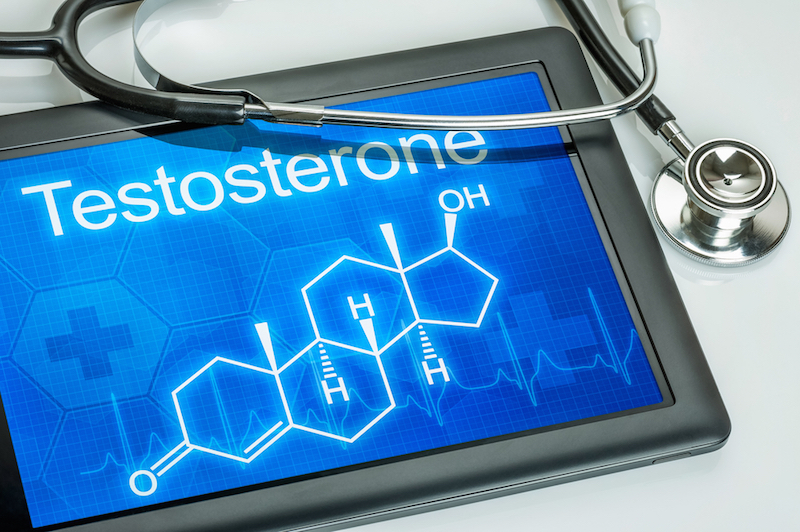Hormones For Transgender Transition Can Cause Severe Acne

Get the world’s most fascinating discoveries delivered straight to your inbox.
You are now subscribed
Your newsletter sign-up was successful
Want to add more newsletters?

Delivered Daily
Daily Newsletter
Sign up for the latest discoveries, groundbreaking research and fascinating breakthroughs that impact you and the wider world direct to your inbox.

Once a week
Life's Little Mysteries
Feed your curiosity with an exclusive mystery every week, solved with science and delivered direct to your inbox before it's seen anywhere else.

Once a week
How It Works
Sign up to our free science & technology newsletter for your weekly fix of fascinating articles, quick quizzes, amazing images, and more

Delivered daily
Space.com Newsletter
Breaking space news, the latest updates on rocket launches, skywatching events and more!

Once a month
Watch This Space
Sign up to our monthly entertainment newsletter to keep up with all our coverage of the latest sci-fi and space movies, tv shows, games and books.

Once a week
Night Sky This Week
Discover this week's must-see night sky events, moon phases, and stunning astrophotos. Sign up for our skywatching newsletter and explore the universe with us!
Join the club
Get full access to premium articles, exclusive features and a growing list of member rewards.
Transgender people who take testosterone as part of a transition from female to male can sometimes experience severe acne as a side effect of the treatment, according to a new report.
The report, from researchers at Ramón y Cajal Hospital in Madrid, describes the cases of two transgender men in their 20s who both experienced severe acne after starting testosterone therapy.
Such skin problems in transgender patients "are important to address because of their potential to disrupt the hormone treatment process," the researchers said.
Some transgender people take hormones as part of their transition to the gender they identify with. For those who are transitioning to male, taking testosterone can cause the development of male characteristics, such as growth of facial and body hair, a deepening of the voice, an increase in muscle bulk and a cessation of regular menstrual periods.
In the new report, the first patient experienced severe acne, along with scarson his face and chest, about two months after starting testosterone therapy. He was treated with the acne medication isotretinoin (sometimes sold under the brand name Accutane), and his acne cleared after nine months. However, the patient's acne returned shortly after he stopped taking the acne medication, so he had to go back on the isotretinoin and is still taking it now, the researchers said.
The second patient never had significant acne in the past but experienced severe acne on his face and buttocks, along with patches of scaly and red skin — a condition known as seborrhea. The skin problems started six months after he began testosterone therapy. For this patient, the acne got better after eight months of treatment with isotretinoin, but returned six months after he stopped taking the medication. [5 Myths About Gay People Debunked]
Previous studies have found that testosterone therapy can cause some people to develop acne, which typically peaks six months after treatment, and then improves. A 2013 study of 70 transgender men found that more than 90 percent of the men who underwent long-term treatment with testosterone did not have acne, or had only mild acne, after many years of treatment. However, in this earlier study, the researchers said it wasn't clear why the patient's acne went away — it could have been that the men started taking acne medications, or that it got better on its own.
Get the world’s most fascinating discoveries delivered straight to your inbox.
"It is reasonable to think that if the patient keeps receiving masculinizing doses of [testosterone], virilizing characteristics, such as acne, will persist," the new study's researchers said.
It's not known whether lowering the dose of testosterone could improve the acne — in the 2013 study, the severity of acne was not related to the patients' blood testosterone levels. It's likely that some people may be more susceptible than others to acne following testosterone treatment, the researchers said.
Transgender patients who undergo hormone therapy experience changes in sex hormones similar to the changes seen in puberty, said Dr. Luis Gonzalez-Mendoza, director of pediatric endocrinology at Nicklaus Children's Hospital in Miami, who was not involved in the new report. But with hormone therapy, these changes occur more suddenly than they do during natural puberty, which might increase the chances of side effects, Gonzalez-Mendoza said.
Testosterone and other male hormones can increase secretion of skin oil, which contributes to the development of acne, Gonzalez-Mendoza said.
Men who take testosterone as treatment for low testosterone levels also sometimes experience acne.
People may be more likely to develop acne during hormone therapy if they have a family history of the condition, or other factors that predispose them to acne, Gonzalez-Mendoza said.
The report is published online today (May 20) in the journal JAMA Dermatology.
Follow Rachael Rettner @RachaelRettner. Follow Live Science @livescience, Facebook & Google+. Original article on Live Science.

Rachael is a Live Science contributor, and was a former channel editor and senior writer for Live Science between 2010 and 2022. She has a master's degree in journalism from New York University's Science, Health and Environmental Reporting Program. She also holds a B.S. in molecular biology and an M.S. in biology from the University of California, San Diego. Her work has appeared in Scienceline, The Washington Post and Scientific American.
 Live Science Plus
Live Science Plus










